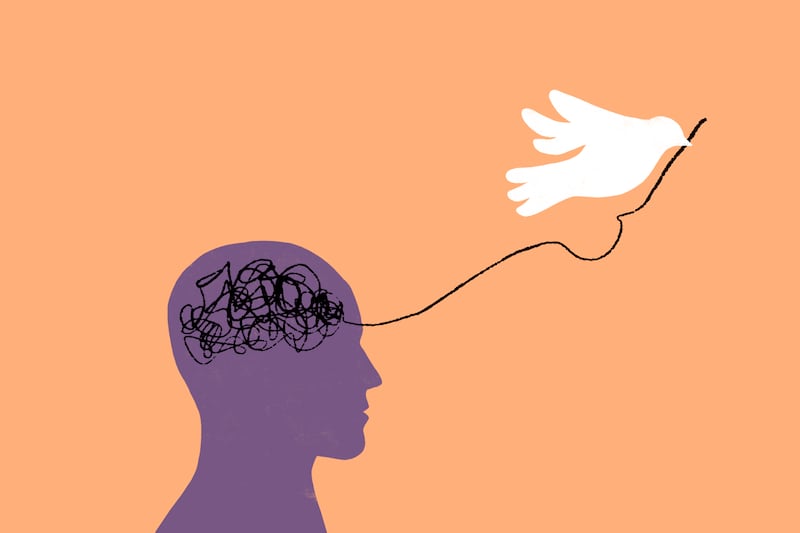Studies show that youth ages 11-26, Generation Z, are part of the loneliest generation ever recorded. This is concerning because loneliness affects mental and physical well-being. A meta-analysis of studies on loneliness done at BYU found that loneliness increases the odds of an earlier death by 45%, the same impact as smoking 15 cigarettes a day.
Loneliness causes us to experience exclusion, isolation, and lack of belonging. According to a study at the University of North Carolina, Chapel Hill, ”loneliness often leads people to feel that they do not matter.” Feeling like you do not matter, like you are a burden or like you do not belong can each precede the development of suicidal thoughts. Dr. David Kahn of Columbia University Medical Center said, “Connection and a feeling of social belonging is the most important initial step in preventing suicide.”
In Utah’s 2021 Student Health and Risk Prevention (SHARP) Survey, 89.6% of those that always felt left out said they “sometimes felt they were no good at all.” Loneliness often leads to low self-esteem and suicidal thoughts; 90% of the students who said they had seriously considered suicide, made a suicide plan, or attempted suicide in the last year, said they felt they were “no good at all.”
Dr. Josh Packard, executive director of Springtide Research Institute, pointed out that Gen Z is not only the loneliest generation, but they are also the most diverse generation in American history. He said, “The diversity that characterizes them — and is a real value that they hold — this is a really critical distinction for Gen Z.”
Springtide, which has the most data about young people’s spiritual lives, found that religion can be an important protective factor for the mental health of Gen Z. But their research shows that participation alone is not belonging. Without belonging, religion loses much of its protection against loneliness.
A meta-study done at Columbia University found that religion often provides important access to a supportive community, source of hope, ways to get through suffering and connection to a higher being. But it also found that if a religion “leaves a person feeling guilty, distant from God, or abandoned by the religious community, that can increase suicide risk.”
Springtide has learned that connecting young people to more trusted adults is an important factor in addressing rampant loneliness and social isolation. These can be substantially reduced by increasing the number of connections young people have to trusted adults.
Our churches need to be a place of trust where youth can connect with trusted adults. Packard also said, “There is a particular effect of being disconnected from our religious institutions that is felt even more strongly than disconnection in other places.”
A question on the SHARP Survey that gives a bit of insight into the importance of trusted adults asked the students if neighbors notice when they are doing a good job and let the student know. About 85% of the students who said they felt left out also said their neighbors did NOT notice or tell them when they did a good job. The same was true for those students who said they sometimes think they are “no good at all.” About 85% of them also said their neighbors did not notice or tell them when they did a good job.
Most of us have youth in our lives as neighbors, relatives, children of friends, etc. We need to notice them and tell them when they do something good. This is especially true for youth that are part of a stigmatized group. When social exclusion happens repeatedly, as often occurs to people in stigmatized groups, it can inflict lasting damage and some experts believe that in severe cases it needs to be treated as a form of trauma. These youth need our help most.
Depending on their identity, 75% to 90% of our LGBTQ youth said they felt left out. As expected, the vast majority also suffer from associated issues of loneliness. The Centers for Disease Control and Prevention Youth Risk Behavior Survey (YRBS Survey) of 9th through 12th graders found Utah had the highest percentage of LGBTQ students who seriously considered suicide. As with all youth, LGBTQ youth can flourish when they know they matter and have belonging.
Because Gen Z is the most diverse in American history, which they value, a careless and stereotyping comment can eliminate someone from being one of their trusted adults and instead make a young person feel lonelier. To be a trusted adult means being respectful of all humanity.
A significant finding in the YRBS survey is that Utah teens have by far the lowest cigarette and alcohol use in the nation. This is a remarkable achievement and shows what our state can accomplish when we work together.
Debra Oaks Coe works as a volunteer on suicide prevention and is the founder of Of-Worth.com.


